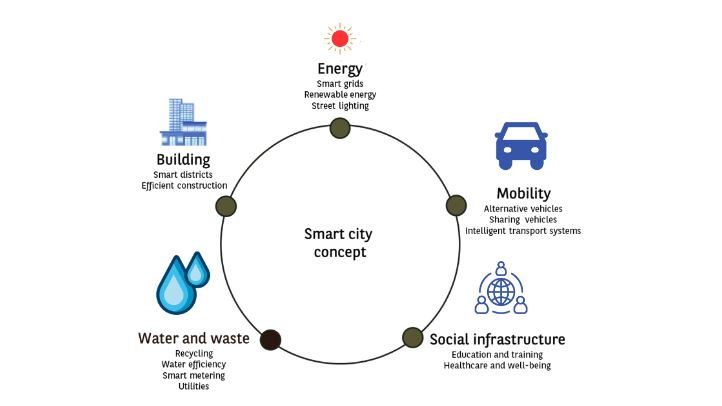The Smart City Revolution: Design Principles and Best Practices for Urban Transformation
Keywords:
Smart City, Integrated Planning, Citizen-Centric Design, Sustainable Infrastructure, Resilience and Adaptability, Smart MobilityAbstract
This research study investigates the key design principles and best practices for smart city development, focusing on the integration of technology and data to enhance residents' quality of life, sustainability, and urban infrastructure optimization. The study explores the following aspects: integrated planning, citizen-centric design, sustainable infrastructure, resilience and adaptability, smart mobility, safety and security, environmental education and awareness, and pilot projects with scalability.The research emphasizes the importance of integrated planning in smart city development, highlighting the need for collaborative efforts across various sectors such as transportation, energy, housing, healthcare, and public services. By ensuring that different systems work together efficiently, a holistic approach to planning can be achieved.Citizen-centric design is identified as a crucial element in smart city development, with citizen engagement and participation playing a vital role in understanding their needs and preferences. This approach ensures that the implemented technology genuinely enhances residents' quality of life.The study also emphasizes the significance of sustainable infrastructure in smart cities, aiming to minimize environmental impact. Renewable energy systems, energy-efficient buildings, smart grid technologies, efficient transportation networks, waste management systems, and water conservation measures are identified as key components of sustainable infrastructure.Resilience and adaptability are highlighted as essential attributes for smart cities to withstand natural disasters and other disruptions. Technologies such as early warning systems, real-time monitoring, and adaptive infrastructure design contribute to the resilience of the urban environment.Transportation is recognized as a critical aspect of smart cities, and the study recommends the implementation of intelligent transportation systems, multimodal transportation options, electric vehicles, smart parking solutions, and real-time traffic management to enhance mobility and reduce congestion.Safety and security are paramount in smart city development, and the research underscores the need for implementing robust cybersecurity measures, surveillance systems, emergency response mechanisms, and smart lighting to ensure the well-being of residents and their data.The study emphasizes the importance of environmental education and awareness initiatives within smart cities to promote sustainability and responsible behavior among residents. Integrating environmental education programs into educational institutions and community centers, as well as conducting workshops, seminars, and public campaigns, can foster waste reduction, energy conservation, water management, and sustainable practices. Engaging citizens through interactive platforms, mobile apps, and social media can further enhance environmental awareness.The research highlights the significance of conducting pilot projects to test and refine technologies and approaches before scaling up smart city initiatives. Starting with smaller areas or neighborhoods and gradually expanding to the entire city ensures scalability and adaptability.This study provides a comprehensive overview of the key design principles and best practices for smart city development, serving as a valuable resource for urban planners, policymakers, and stakeholders involved in the transformation of cities into smart and sustainable entities.
